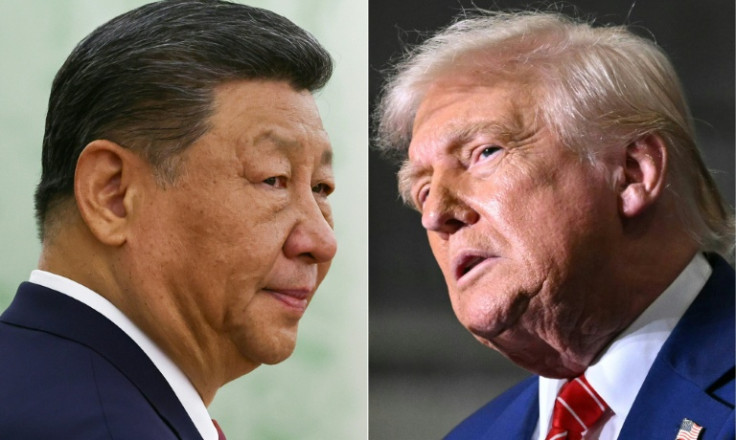'Could Be Devastating': US Soybean Farmers Warn of Bankruptcies Amid Trade Shift

KEY POINTS
- Nebraska's Scott Thomsen says Chinese halt of soybean purchases has driven prices down.
- Farmers warn of bankruptcies and storage issues as Beijing buys from South America.
- Trump promises support, but USDA aid plan for struggling growers remains unclear.
In Nebraska, Iowa and across the Midwest, soybean farmers are bracing for one of the most difficult harvest seasons in recent memory.
For years, China was the most dependable buyer of American beans. But as trade tensions escalate between Washington and Beijing, China has turned away from the United States and towards South America, particularly Brazil.
Farmers warn the consequences could be devastating at a time when production costs are already climbing.
Nebraska's Thomsen: A Farmer Caught in the Crossfire
On his family farm in Kennard, eastern Nebraska, fourth-generation grower Scott Thomsen is preparing to bring in his soybean crop under grim circumstances. Thomsen, who also raises corn and cattle, told ABC News: 'China has not bought a single export cargo of beans so far this year, which is not very typical.' He added: 'When China quits buying, our prices go down.'
Thomsen, like many others in the Cornhusker State, sees himself as a pawn in the larger U.S.–China trade standoff.
A Market Shaken
China has long been the dominant buyer of soybeans, importing more of the crop in the past five years than the rest of the world combined, according to the American Soybean Association.
In the seven years leading up to the 2018 trade war during the first Trump administration, around 60% of all U.S. soybean exports went to China.
Now, Beijing is sourcing heavily from South America. As a result, farmers in the Midwest are left with unsold harvests and shrinking revenues. 'It's just a massive shock to our markets,' said Cory Walters, professor of agricultural economics at the University of Nebraska, speaking to ABC News.
'Worst Economic Downturn in 50 Years'
The mood among farmers is bleak. At a recent meeting in Beatrice, Nebraska, John Hansen, president of the Nebraska Farmers Union, told attendees: 'We're in the middle of the worst economic downturn that I've seen in my 50 years.'
Farmers say the crisis could ripple far beyond agriculture. 'Agriculture is our foundation here in Nebraska and many states in the Midwest. If agriculture is failing here everything is going to fail,' warned Don Schuller, a corn and soybean farmer, in comments to ABC News.
Storage is also a looming issue. With grain elevators and crushing plants slowing their purchases, many producers worry they will run out of space to store their soybeans. Others fear that a flood of unsold crops from other states could saturate local markets and push prices down even further.
Trump Offers Support, But Details Are Thin
President Donald Trump has repeatedly promised farmers that they will not be left behind. 'I won 80%, 85% of the farmers. And I love them,' he said in June. 'I'm never going to do anything to hurt our farmers.'
During his first administration, when soybean sales to China fell under similar circumstances, the White House authorised billions in payments to support producers. Trump has since suggested that tariff revenues could again be used to fund farmer relief. 'I hope China will quickly quadruple its soybean orders,' he posted on social media in August. He later told reporters he wanted to take tariff money and 'give it to our farmers.'
But according to the U.S. Department of Agriculture (USDA), no concrete plan has yet been finalised. 'Soybean, corn, wheat, sorghum, cotton farmers are facing very difficult times,' Agriculture Secretary Brooke Rollins said last week. 'We are currently in conversations here at the White House, across the government, on a farmer aid package.'
China has signalled that purchases could resume if tariffs are rolled back. Commerce ministry spokesperson He Yadongsaid: 'The United States should take positive action to cancel the relevant unreasonable tariffs to create conditions for expanding bilateral trade.'
Resilience Amid Uncertainty
Despite the hardship, Thomsen said he still supports Trump's stance in negotiations. 'I voted for him because I'd like to see manufacturing come back ... I think this is some short-term pain for a long-term gain,' he explained.
When asked why he continues to farm despite the uncertainty, Thomsen described it as more than just an occupation. 'It's a passion. It's a tradition. It's a hobby,' he said. 'There's farmers in our area that have full-time jobs and they'll do it after working on the weekends. That's what they grew up doing and people have a lot of passion for it.'
As harvest begins across the Midwest, America's soybean producers are waiting to see whether Washington and Beijing can find common ground before more farms face the threat of bankruptcy or foreclosure.
© Copyright IBTimes 2025. All rights reserved.





















